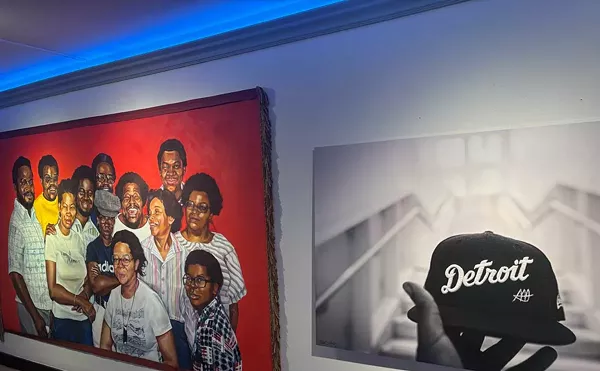
Audio By Carbonatix
[
{
"name": "GPT - Leaderboard - Inline - Content",
"component": "35519556",
"insertPoint": "5th",
"startingPoint": "3",
"requiredCountToDisplay": "3",
"maxInsertions": 100,
"adList": [
{
"adPreset": "LeaderboardInline"
}
]
}
]
It is an end worthy of his screen presence: composed but alight with barely contained passions, vulnerable yet enigmatic, touched by a hint of cruelty, and dramatic above all. And it is for that ineffable presence, which he lent to such contemporary Chinese cinema classics as A Chinese Ghost Story, Rouge, The Bride With the White Hair, the international art-house success Farewell, My Concubine, and Happy Together, that Cheung is likely to be long remembered.
Born in Hong Kong in 1956, the baby of 10 children, Cheung Kwok-wing was the son of a tailor who made suits for Hollywood icons like Cary Grant and William Holden. Cheung insisted his father's minor renown as the "Tailor King" had little effect on him, though when he emigrated to England after secondary school to study at Leeds University he studied textiles. Possibly more affecting was his unhappy home life, characterized by two often absent parents who divorced when he was young. Nonetheless, when his father fell ill, 21-year-old Cheung ended his studies to return home.
After coming in second in a Hong Kong talent competition in 1976, Cheung embarked on a singing career. His good looks made him a teen heartthrob; his sexually ambiguous air made him provocative. His growing fame landed him movie roles, but despite occasional flashes of his more scandalous side, he remained just another pretty-boy Canto-poppet until director John Woo cast him as the tortured rookie-cop younger brother of a gangster in 1986's A Better Tomorrow. The film was a sensation, gaining Cheung the attention of a better class of director, who capitalized on his hitherto unsuspected serious acting skills.
Cheung not only became a huge star in Asia — and, more slowly and modestly, renowned overseas — he became the kind of star about whom people whisper. Openly gay stars are even more rare in China than in the West, and Chinese actors are much more reluctant to take on gay roles; Cheung's career-defining turn as a Beijing opera star specializing in female roles who is in love with a straight cohort in Chen Kaige's 1993 Farewell, My Concubine did little to dampen speculation about his sexuality. By the time he played the mercurial Ho Po-wing, one half of a can't-get-along gay couple stranded in Buenos Aires in Wong Kar-wai's bittersweet 1997 Happy Together, he had come out, publicly acknowledged his longtime companion, Daffy Tong, and was seemingly happy.
In the wake of Cheung's suicide, many observers pointed to the eerie irony of his final role in a film titled Inner Senses, a supernatural thriller in which he played a psychiatrist driven to the brink of suicide by the spirits of the dead. More mundane portents are plentiful. The good looks on which he had traded his entire career were no longer youthful, and he had recently split from Tong. The Hong Kong media had reported a previous suicide attempt involving an overdose of pills. In his final note, Cheung reportedly thanked Tong, his family, and his legions of fans and, remarking on the depression that ushered him to his death, wrote, "I have not done one single bad thing in my life, why is it like that?"





